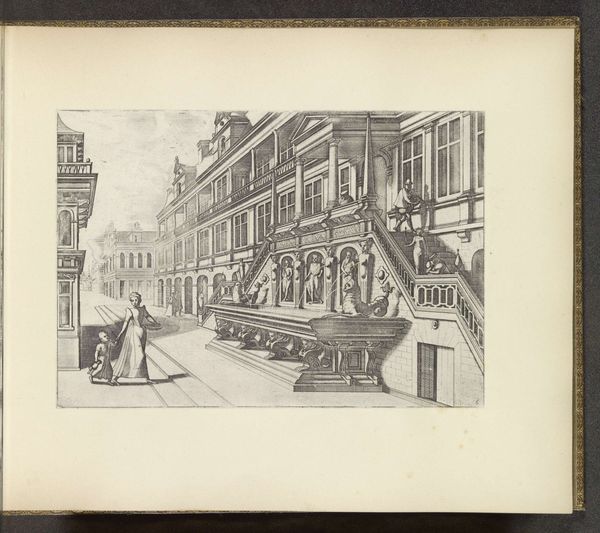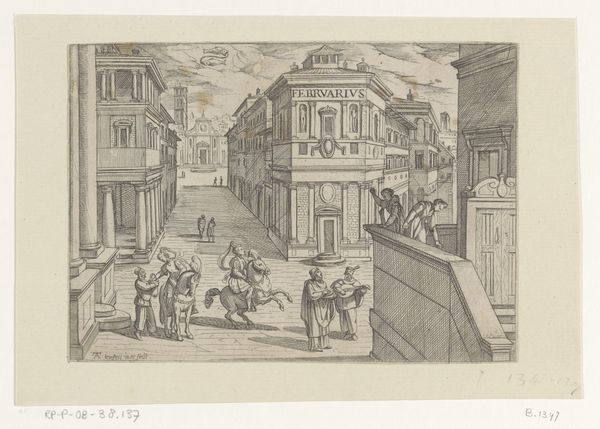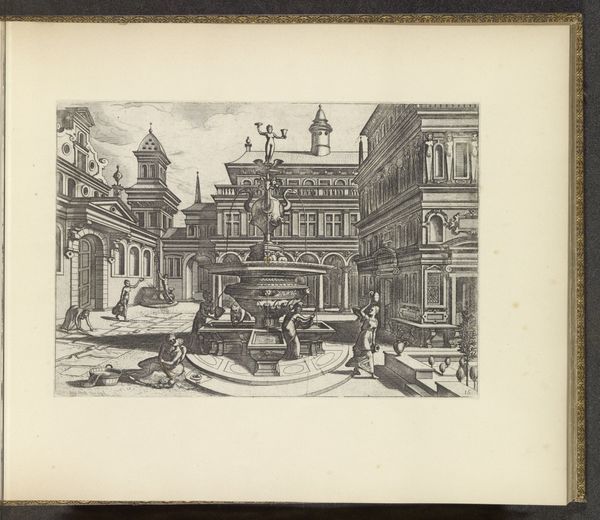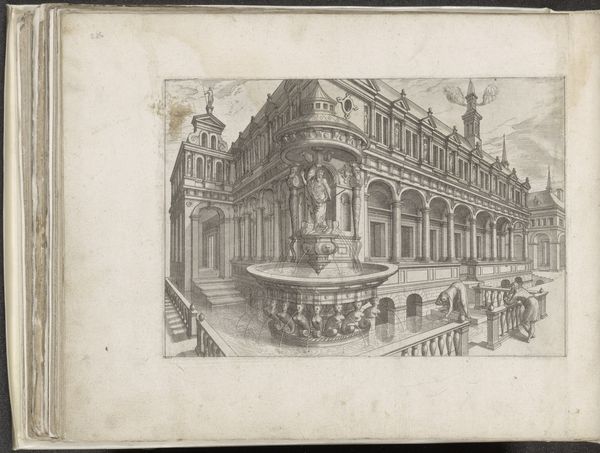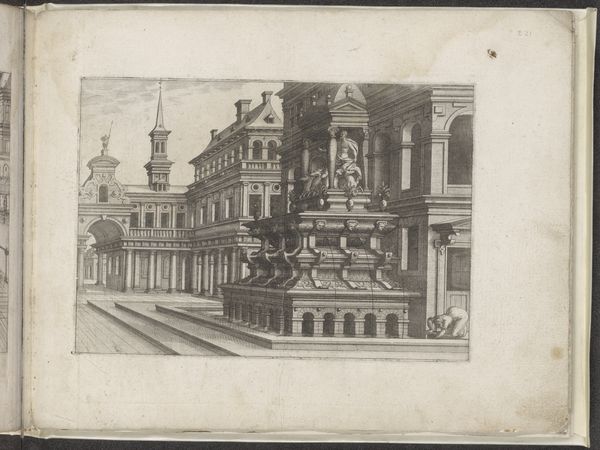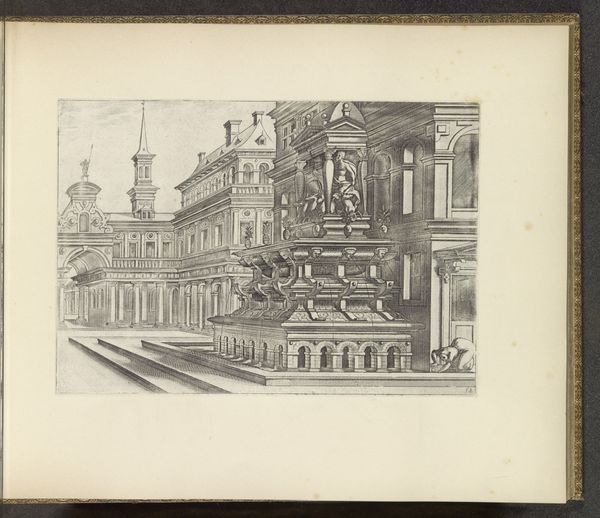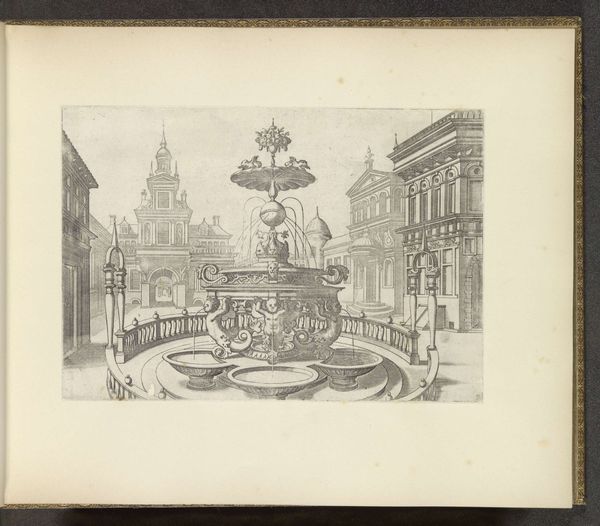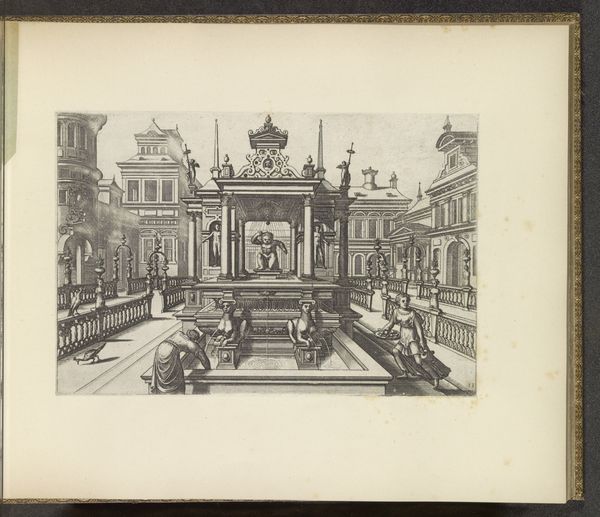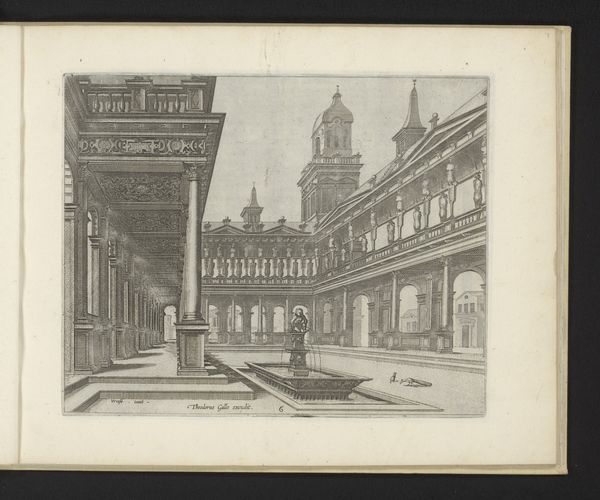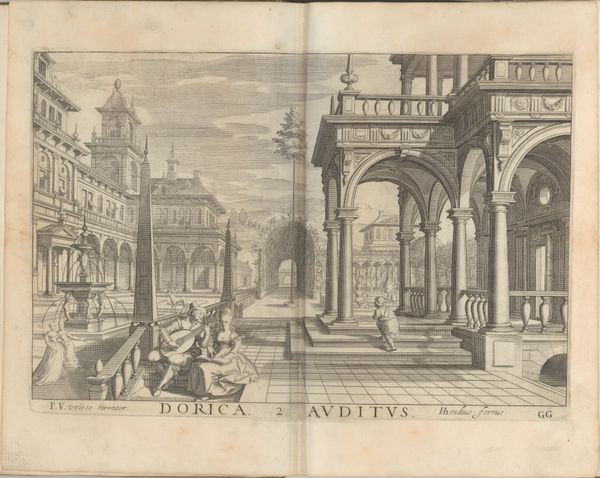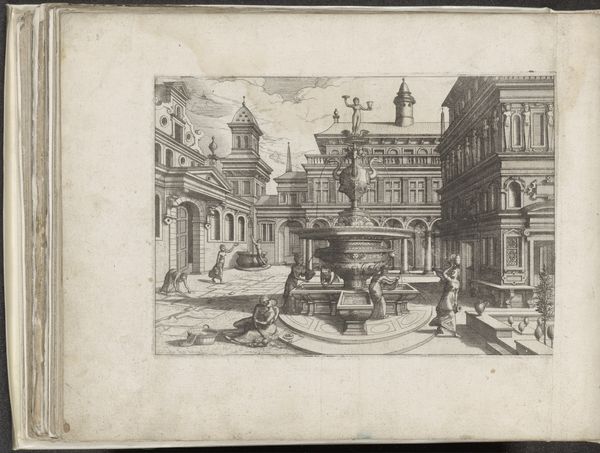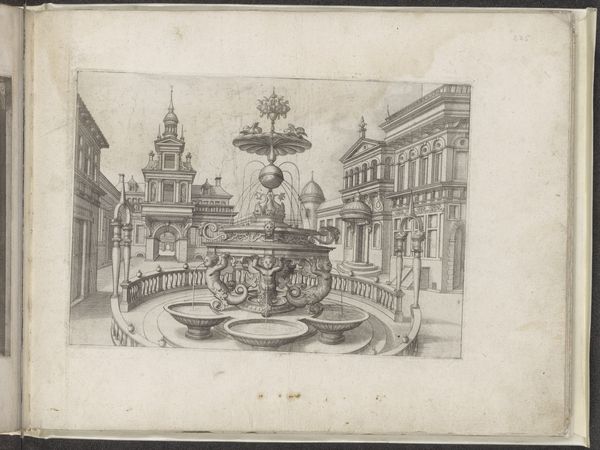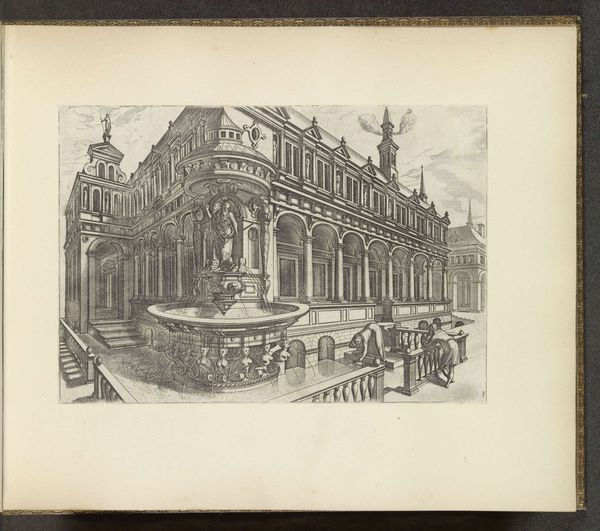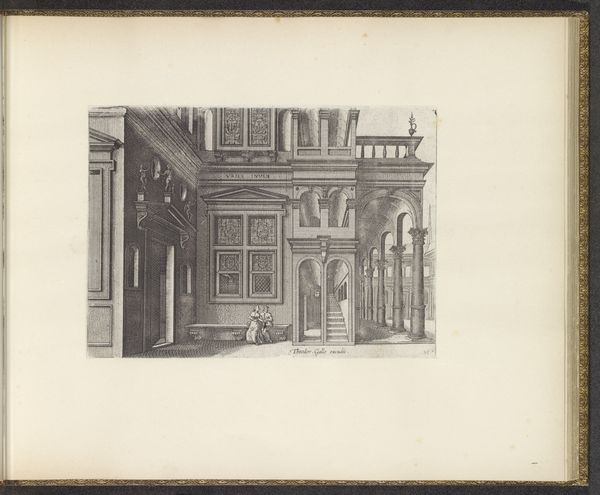
print, etching, engraving
# print
#
etching
#
perspective
#
cityscape
#
northern-renaissance
#
street
#
engraving
Dimensions: height 173 mm, width 248 mm
Copyright: Rijks Museum: Open Domain
This street scene with wall fountain was made by Joannes van Doetechum around the late 16th century, using engraving. Look closely, and you'll see that the image is composed of a multitude of tiny, precise lines incised into a metal plate. Doetechum would have used a tool called a burin to physically cut these lines, a painstaking and highly skilled process. Ink would then be applied to the plate, and the surface wiped clean, leaving ink only in the engraved lines. Finally, the image would be transferred to paper under great pressure in a printing press. The resulting print, with its sharp lines and tonal variations, has a crisp formality. Consider the time and labor involved in creating such a detailed image, which would have been accessible to a relatively wide audience. This speaks to the growing importance of printmaking as a means of disseminating information and artistic ideas during the early modern period, reflecting a shift towards a more visually literate society. In appreciating this print, we recognize the artistry of the engraver and the social context in which it was made.
Comments
No comments
Be the first to comment and join the conversation on the ultimate creative platform.
